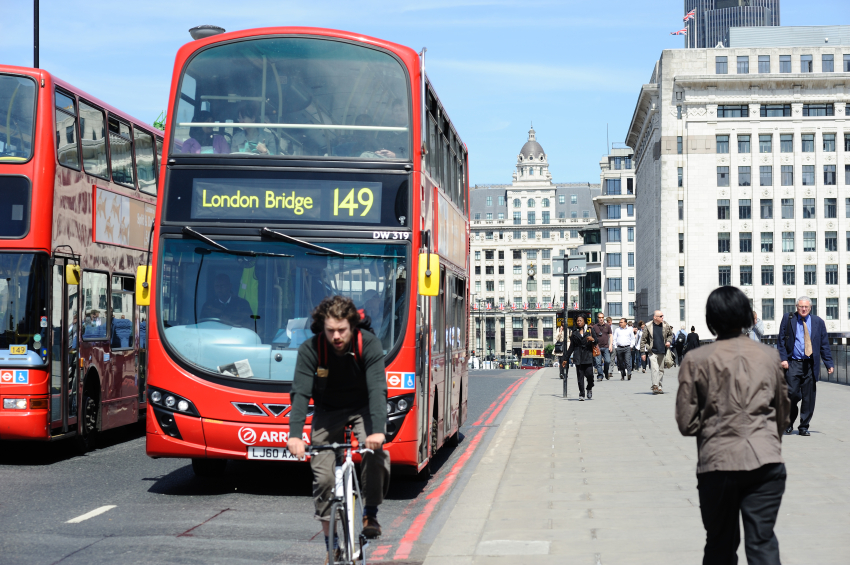
The Office for National Statistics this week released data on trends for those choosing to cycle to work between 2001 and 2011. While overall national statistics showed no change, city commuting has increased markedly in popularity.
The ONS reports that 2011 saw 741,000 people cycle to work in England and Wales. Although this is an increase of 90,000 since 2001, taking the population increase into account means the percentage of cycling commuters nationally is unchanged at 2.8%
Urban working residents were twice as likely to cycle to work as their rural counterparts however. Hotspots for increases in commuting by bike were in the UK’s cities, suggesting that investments in cycling ease and safety in those areas was key.
Londoners cycling to work doubled in number from 77,000 in 2001 to 155,000 in 2011. Brighton saw a 109% increase in those going to work by pedal power, Bristol 94%, Manchester 83%, Newcastle 81% and Sheffield 80%.
Cambridge has the highest rate of cyclist commuters with 29%, however there were also 29 local authorities where less than 1% cycled to work. The lowest rates were reported to be in Wales with only 0.3% of Merthyr Tydfil’s residents using their bikes to get to work.
Men were significantly more likely to commute to work by bike than women (3.9% for men in 2011 versus 1.6% for women). By region, men were most likely to commute by bike in London (5.1%) while the highest region for women to cycle to work was ‘East of England’ at 2.5%.
Martin Key, of British Cycling, told The Times that the increases were in cities ‘that have made the biggest financial commitment to increase cycling’. Bristol, one city to see an increase in cyclists commuting, was awarded £11m to improve cycle routes in 2008. The Times also reports that Brighton received £3m in 2005, Manchester £20m and Newcastle £5.7m. Further details on Government funding into cycling can be found here: ‘cycle ambition funding’.
Mr Key has also said: “Once again, the evidence is clear that sustained investment in cycling brings results for the cities that are willing to commit. More than two million people regularly cycle and our data shows that nearly two thirds of people want to cycle more if protected space is provided. That is why we are working to convince politicians and local authorities that reallocating existing funding to prioritise cycling is a no-brainer, not only for the nation’s health but for our communities, environment and our economy.”

